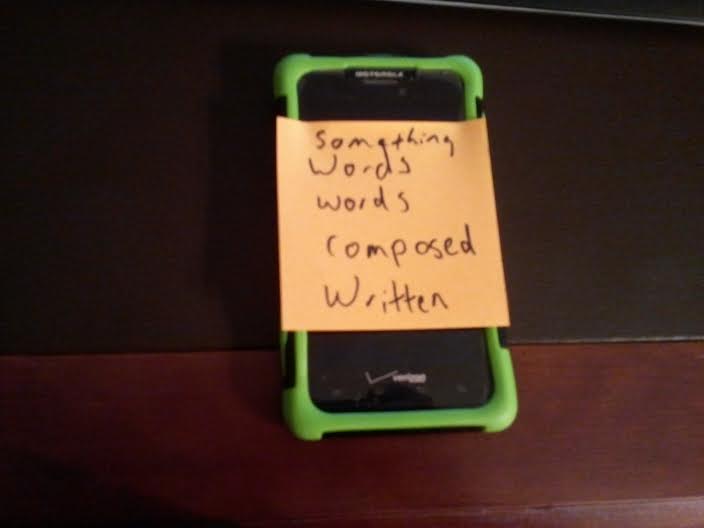|
Posted on March 9, 2014 was a post on the listserv called "Composing on a Cell Phone," which opened the doors for many to discuss what this means for their students' compositions, and a potential new medium of writing--or not.
This also opens a door about technology in the classroom. One person wrote: "So often, technology is touted as the promise and answer to everything.We are told that technology makes everything easier, simpler, and more accessible. But when we consider technology and Basic Writing, is that true? Does technology provide open access for our students to achieve their educational goals, moving from developmental writing courses through graduation? What is the impact of technology on basic writing classrooms today? What are the political consequences of eschewing digital pedagogies? Of adopting them? Who controls these technologies? What are the implications of who creates and controls them? What does responsible basic writing pedagogy look like in a digital age? This pre-conference workshop will work to explore the possibilities, realities, and restrictions of technology and basic writing pedagogies." Which brings me back to Denis' and my presentation on basic writing. Not everyone has access to the same technology. While we may carry around laptops, that doesn't mean they all function the same. Also some students still use "dumb phones," and cannot access the internet or documents in the same way others do. There is also a question for me about technology literacy. What about students who don't know about some good apps to keep documents on like Evernote? What about those who are not as advanced online as others, or those who don't utilize sites as much as others. An example would be this blog: The people in this class with experience on Weebly already knew how to do everything, drag and drop 'elements' etc. But most had to learn, and that could have been potential struggle for some. Back to cell phones, how well can some people really compose on there? And at what medium? Do they have an office app? Are they emailing something to themselves? Or are they using basic notepad? And in what way do professors get to see it? To me, it seems like professors and educators do not like cell phone written pieces. Mostly because its hard to use Spell Check and actually type more than 3 words on the screen. But outside of the education world, we see so many people using phones. An example would be Program Committee's Open Mic nights. Poets keep their poetry in different formats so they can access them on any device. Even my phone. They recite from a phone or tablet in front of them. Sometimes a laptop if they can juggle that with the mic. But you see them scroll, and eventually they look up and finish without needing their device. I suppose it depends on the medium and the writer's favored way of writing. You couldn't suppress a poet sitting on a subway with the only thing to write on is a phone. Or someone who stores their pieces everywhere for optimal pick up. Its an art. While basic writing, essay writing, and classroom writing may not be optimal on a cell phone, it may be something people like to do because its all they have on them constantly. Very rarely do you see someone with notepads now. Its one of those things that have a time and a place.
1 Comment
|

Blog493This blog is a reactionary overview of the daily posts to the Writing Program Administrator's listserv. One day; one blogger; lots of reactions. Archives
May 2014
Categories |

 RSS Feed
RSS Feed